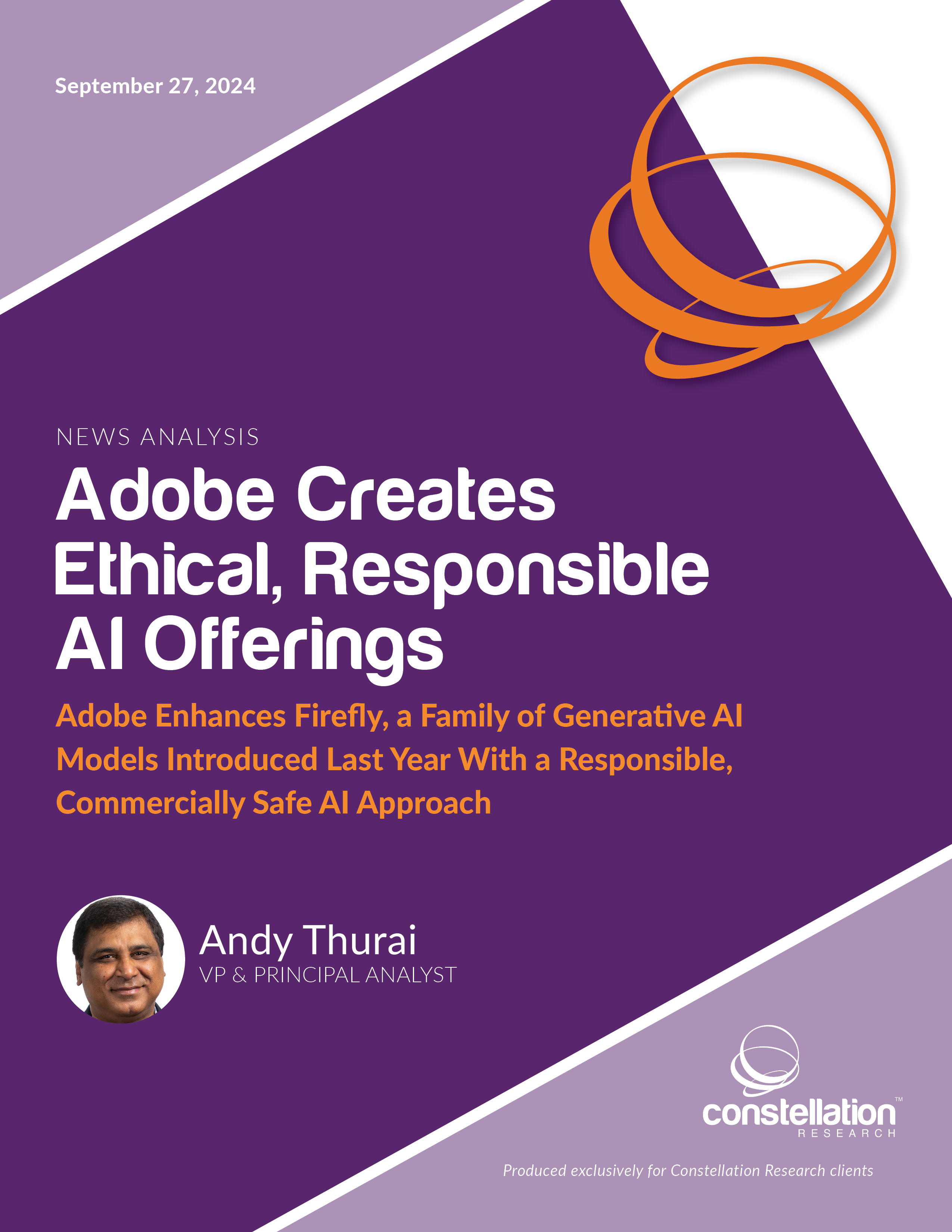 Executive Summary
Executive Summary
A few select software vendors are taking a thoughtful approach to ethical and responsible generative artificial intelligence (GenAI) offerings, and Adobe is one of them.
With its set of GenAI offerings, first introduced in March 2023, Adobe is looking to establish a major presence in the AI area—GenAI in particular—and differentiate itself from competitors in two ways: by embedding GenAI capabilities directly into existing creative, marketing, and operations teams’ tools and workflows instead of offering them as stand-alone solutions; and by making its family of GenAI models commercially safe.
Despite rising investments in AI by enterprises, relying on what is delivered by AI can be a hit-or-miss process. For people to trust AI, it needs to be reliable, unbiased, ethical, accountable, and able to provide transparent outputs that will help instill confidence in those systems over time.
Adobe has introduced many AI-based tools across its platforms. Adobe Firefly is its family of creative GenAI models for content and media. The first of its kind from Adobe, it has generated more than 9 billion images and counting, according to the company’s Q2 2024 earnings report. Adobe Firefly brings a governed, predictable, and secure GenAI to the unpredictable world of GenAI applications. Adobe has done a lot of work in ethical AI, responsible AI, and the ability to provide a transparent and validated approach to content provenance.
This research report evaluates Adobe’s Firefly initiatives. It identifies key differentiators, examines functional capabilities, considers the offering’s strengths and weaknesses, and suggests use cases. Technology buyers looking to implement solutions powered by Adobe Firefly should use this report along with other Constellation Research reports to evaluate their maturity and readiness for such applications.


